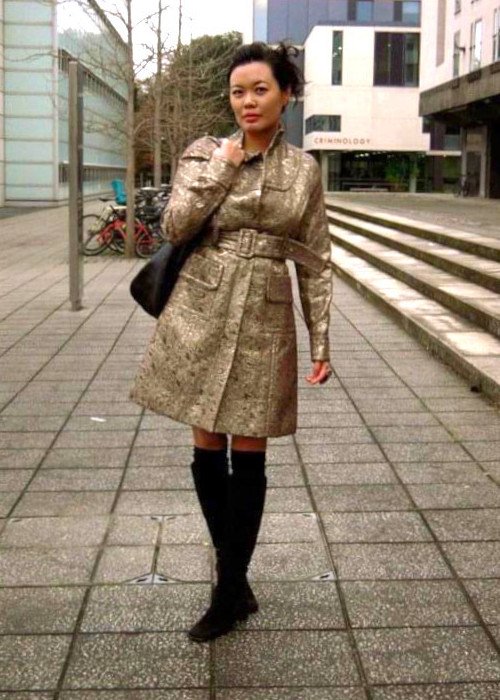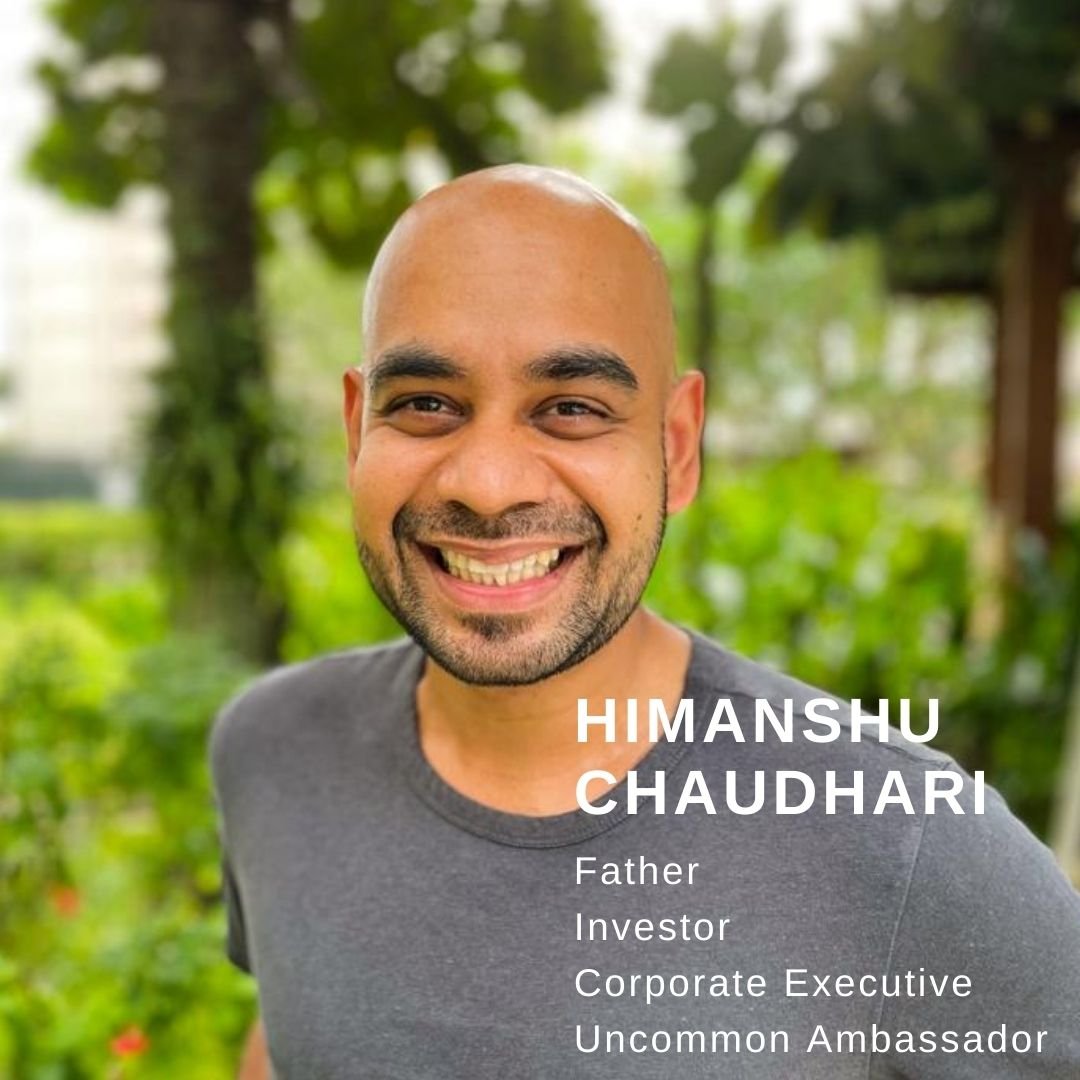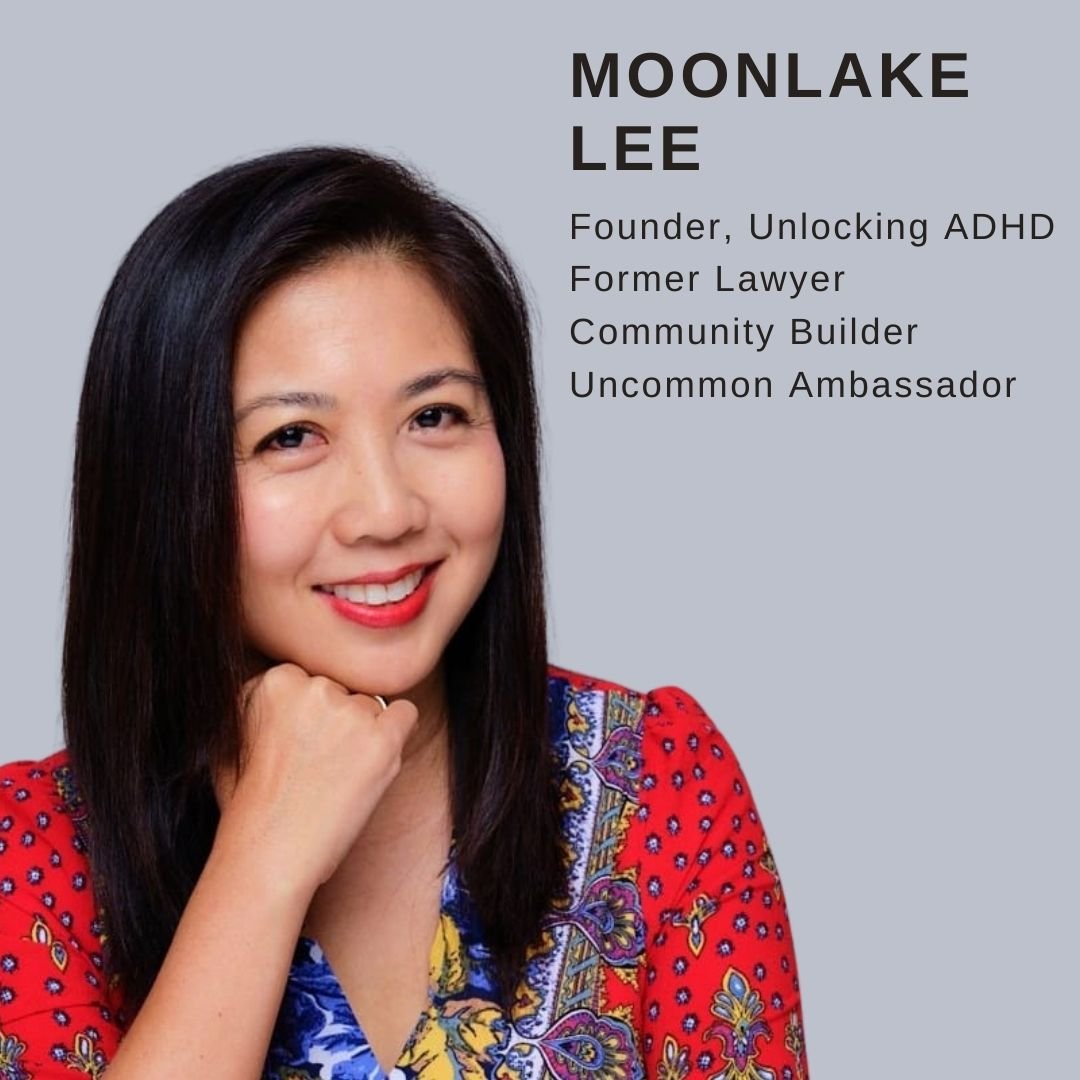Perpetua Neo
Hi, my name is Perpetua. I am a psychologist and coach for overachievers all around the world.
Dr Perpetua Neo found creative workarounds for ADHD in school, realised that she was wired differently, and then channelled her ADHD superpowers into executive coaching and writing.
I also support organizations to leverage diversity and perform at their best.
My work as a coach
I have always liked solving problems for people, and that led me to psychology. From there, I integrated my therapeutic and coaching toolboxes with a multidisciplinary background, and support my clients to get where they want to be. This is a job that I feel very blessed to have and energised when I get out of bed.
“Sometimes my dad would lament about life, “Whose work is joyful”? And I’ll go, “Mine!””
Plenty of times people come to me, knowing that what got them here, will not get them to where they want to be. They’re burnt out and quite unhappy, their brains clogged up and ravaged by a tornado. I teach them to be in control of their heads.
At the London Institute of Directors
That’s the first thing. I don’t tell them that they have to meditate for two hours a day, to stop being ambitious, or give up all their worldly pleasures. No, you can have goals. You have to taste the things you love, but you have to find a way of being in control and find that peace in your head and heart.
The whole idea is that if you’re a top athlete, chess player, or pianist – you are still going to need a coach; what more than the rest of us. If you’re really going to be good at what you do, partner with someone to tweak your life’s systems to get you where you want to be.
Unearth the painful parts of your past that you bury away, and metamorphose them into something that pays dividends for your present and future.
My younger days
I was born in Singapore, and have been travelling since I was 2; so it was no surprise I ended up in the UK. I read my Masters in Criminological Research in Cambridge, and trained for a Doctorate in Clinical Psychology at University College London—impatient me chose the UK because it had the shortest route. I stayed there for 10 years, starting my boutique coaching practice.
At Cambridge and Brighton
But every ‘Welcome Home’ at the immigration gates at Changi, and every cup of Milo on SQ, tugged at my heart. And one day I decided that Singapore is ultimately home, and moved back in 2019. As I set up my life in the hustle of Orchard Road, little did I know that there was another hustle brewing in the background—the COVID-19 pandemic. I’m so grateful for that timing.
I remember a childhood filled with activities—I’d ask my Mom to enrol me in all sorts of classes from ballet to computer and buy me all kinds of books. You may think that people with ADHD are runners or sportspeople, but I had little stamina and was always falling sick—I’d be the kind of person you’d call weak and unrobust. So it was hard to pinpoint—did I have energy because I climbed gates and jumped everywhere, or did I not because I failed all my physical fitness tests?
“I knew that for things I loved, I could focus; but for everything else, that was a pain.”
The thing that worked for me was being ambitious. Achieving grades made my eyes sparkle; also I was brought up with two diligent, clever older cousins. To do well, I had to find some unorthodox solutions. I bargained with my mother—I told her that if my teacher took three hours to explain a concept I could splice in ten minutes, then could I promise her I’d study on my own, score my distinctions, and she’d write me a letter of excuse? That way, I could sleep in too. Of course, I kept my end of the bargain and delivered.
Because I was innately curious. My brain loves systems, so I’d take time to figure out how to crack the lock of a concept or language, and amp it up in difficulty to challenge myself and test if I’d really gotten it. That was fun. And a big contrast with rote learning. I hated how we had to memorise 50 essays and do Ten Year Series three times front-to-back, which obviously I never did.
My family
My dad is fast-paced. He used to be nicknamed ‘the flying horse’ by his friends for his walking speed and is incredibly impatient. If you were to put my brother and I together, I would speak at three times the speed, no one would understand us, and it would still be too slow for me. And so I’ve had to come to peace with how others think I’m too fast, but I think I’m too slow.
My father is very structured. That helped train my unstructured ADHD brain, which used to be scattered, forget things, and flit from the surface of one topic to another. I now have this ingrained checklist and flowcharts of what to do in every situation, so I’m on top of things. Total lifesaver.
My first holiday in Taiwan
My mother is the calm one in the family. She wanted to make sure that we had an education and a future. She supported me in whatever I wanted to do, like my unorthodox suggestion, as long as I was a good person. To her, it didn’t mean that skipping school meant that I was a bad person, as long as I produced the grades! Sometimes I have a little giggle with her, on how her gamble paid off.
School
School was a mixed bag for me. I was good in English, and I’d often get a free pass from my English teachers. But the Chinese teachers generally didn’t like me because I was not your proverbial good Chinese student. It made me quite angry because different speeds were not catered to, but with the benefit of hindsight, I understand the mindsets of my teachers and the demands of the classroom. I’m glad I finished in one piece! And today I have a newfound appreciation for the Chinese language and coaching in it too.
I never worried too much about my grades, knowing I could always achieve, even in the things I wasn’t naturally that talented at. However, I didn't like continuous assessments or coursework, because I didn’t feel any urgency and so would show up not doing my homework, or sounding absolutely stupid. It made me feel idiotic in the moment. When it was time for exams, my ADHD brain would kick into Happy Deadline Mode and that would deliver.
In fact, I was reflecting with fellow ADHD-ers how we’d never melt down during exams, and instead, it felt like sailing calm oceans. So I often found myself walking out of examination halls way too early, despite having checked 5 times.
Success in writing
As an adult, I break everything down into deadlines and sprints – just enough to give me some adrenaline and excitement, but not the kind where I would just do everything at the last minute and then crash and burn.
I can definitively say that all the amazing things in my life come from using my ADHD—don’t look a gift horse in the mouth, right? I write for New York wellness giant mindbodygreen, The Huffington Post, and have a book released in May 2022 with Simon & Schuster. Do you know how I honed my writing? I trained to write about the most mundane things and random stuff about food on Instagram. That kind of single-minded obsession comes from my brain wiring.
During Seattle Startup Week
How I explain ADHD to those who are interested is this—you know you’re different, and it's hard to connect with the outside world apart from the protagonist in Albert Camus’ L’étranger. But as you break it down with plenty of courageous reflections and refractions, you realise it’s just that you have a lot of higher-level skills, and your basic skills are missing. Like, how to take care of yourself, how to be with other people, or how to sleep healthily. So you don’t honour your gifts, and you get hopeless and furious about how you seem to lack the basic algorithm for functioning in life. That’s two massive things stacked against you.
Then I learnt this dictum 既来之则安之—if I’m already here, the only way is to accept it, and then we can start to do something about it.
In ADHD, if you learn to use your higher-level gifts—like the ability to hyperfocus and break out of previous cages in your head and the world—to catch up on the basic algorithm stuff that is so important to your day-to-day vitality, then you win—in writing, in relationships, and in life.
Building my confidence
At the French Riviera
Confidence is a transferable skill set. If I'm competent in one area of my life, I can find that place and practise that. When it comes to areas where I’m not confident, it helps to have a coach or confidanté who can pick out blind spots. Another thing would be to make sure you're always regulating your brain—don't fly off-the-handle, or tumble down the rabbit hole of overthinking and despair.
Be very self-aware about what or how you’re feeling instead of performing Cognitive Photoshop and lying to yourself. In Singapore and generally in Asia, we are excellent at suppressing ourselves—it’s not about giving in and being a victim of our feelings. Rather, it’s about acknowledging that I’m feeling a certain way right now, it’s not comfortable, but I’m going to regain control by looking it in the eye. And, I’m going to regulate my brain by breathing three deep breaths. Then I’ll take it from there. If you don’t fly on aeroplanes where terrorists hijack the system, then you shouldn’t be running your brain when it’s being hijacked by your primitive fear centre.
Advice to others
“You need to know there’s nothing wrong with you, no matter what others tell you, or what you tell yourself. Some people are tall, some are short... the same thing with your brain.”
There are some things you’re wired to be fabulous at, and others, not quite. That doesn’t mean you discount the things you are good at, or call yourself lazy or undisciplined, because these labels are the poltergeists in your house that you don’t know, but haunt you. You use your gifts as a way of catching up with the things you fall short in. You find ways to organize your brain and your lifestyle, to get you to where you need to be.
It’s quite common for neurodivergent people to be bullied. Because you don’t trust yourself, knowing deep down there’s something not quite normal about you, it’s easier for you to outsource authority. What happens is you then learn to gaslight yourself, and you become what toxic people identify straight away as juicy prey.
“We have to learn boundaries—how to say no graciously, and that we have permission to say that. Those who don’t honour our No’s deserve to be kicked out.”
Consider your role models. For me, they are Richard Branson who has ADHD, the late Mr Lee Kuan Yew who was dyslexic, and Leonardo da Vinci, my favourite polymath. Focus on the people you respect greatly, take in their lessons and journeys, and add your own essence in.
I meet a lot of people who don’t believe I’m neuro-atypical. I used to get defensive; but I soon realised the futility of having to regress into my younger self to prove that point—and to what end, pity? Besides that, there’s no stereotypical ADHD Look—it’s not chromosomal! We have so many subtypes.
Finally, being neurodivergent is not an excuse to get away with things like bad behaviour or having poor integrity.
It’s about understanding how you’re wired, so you develop self-mastery. Instead of killing your demons, you make them work for you. I like that, a lot.
In Okinawa










